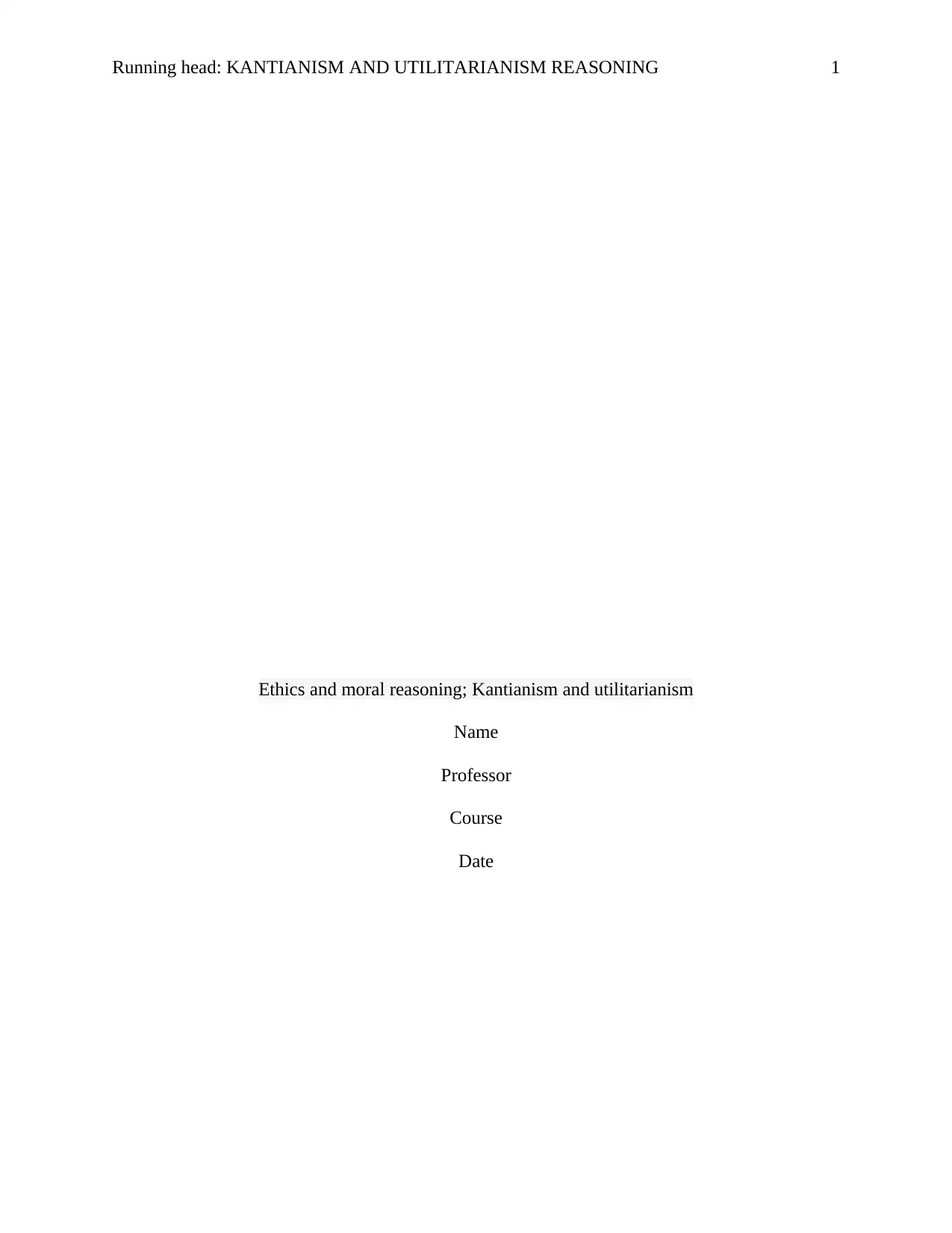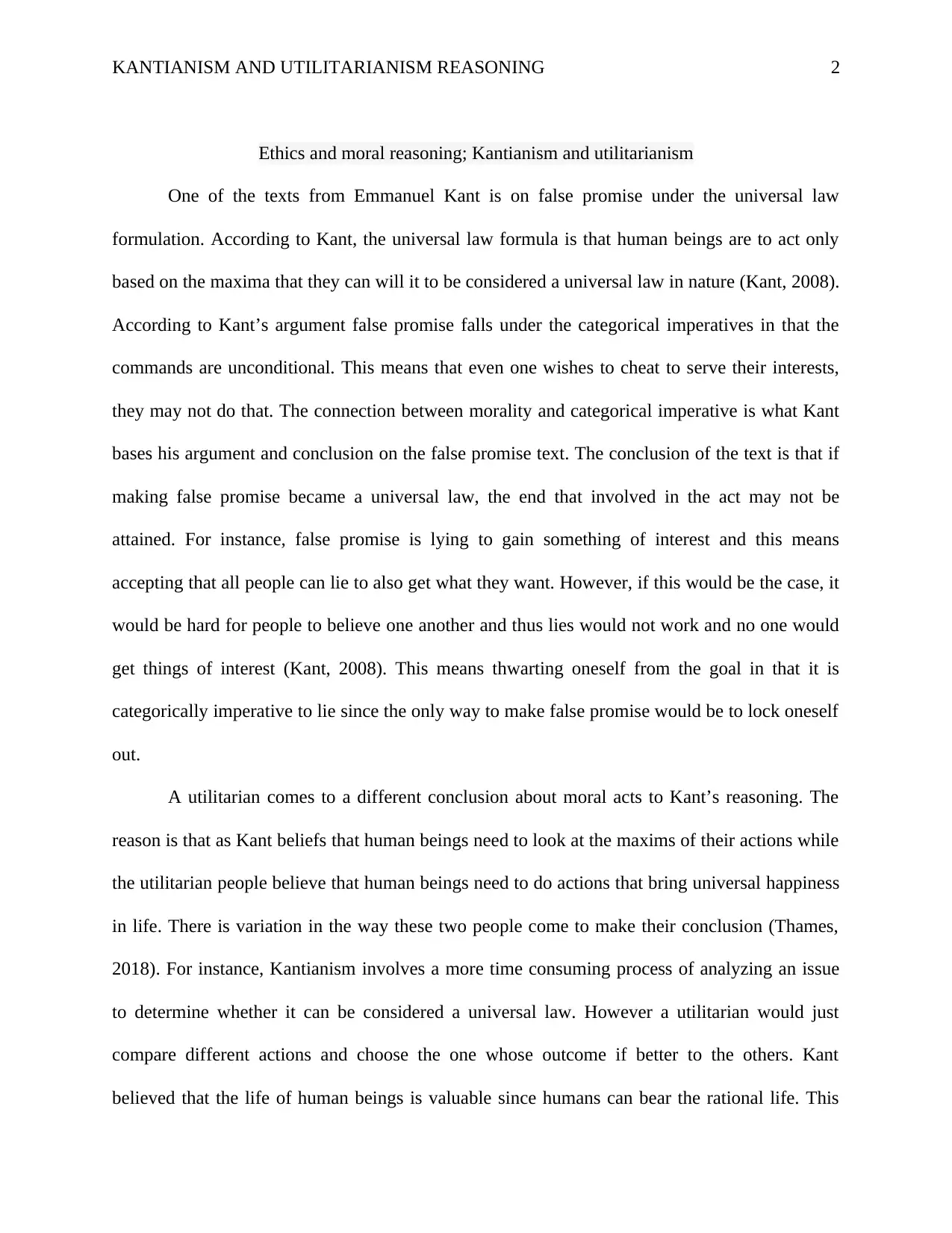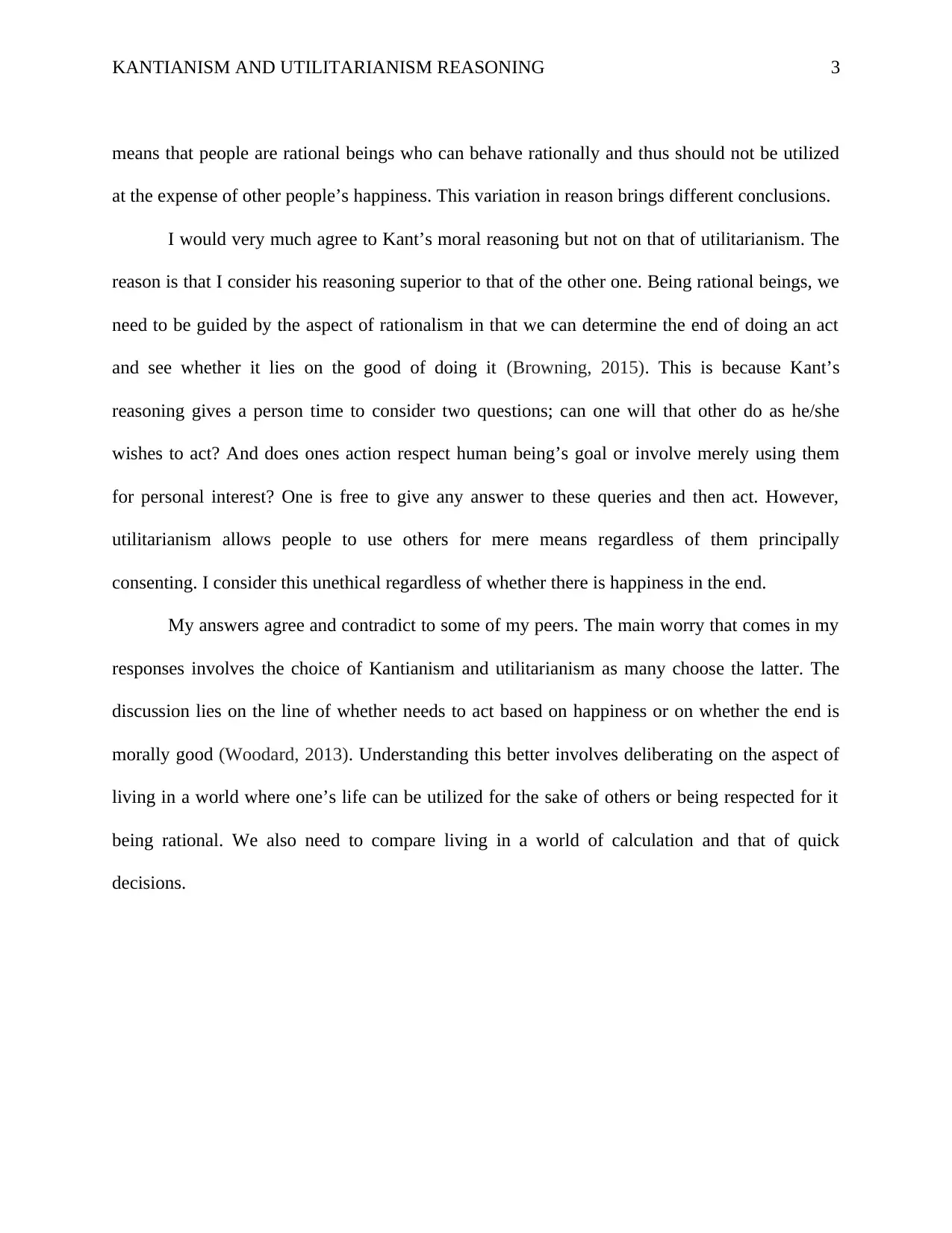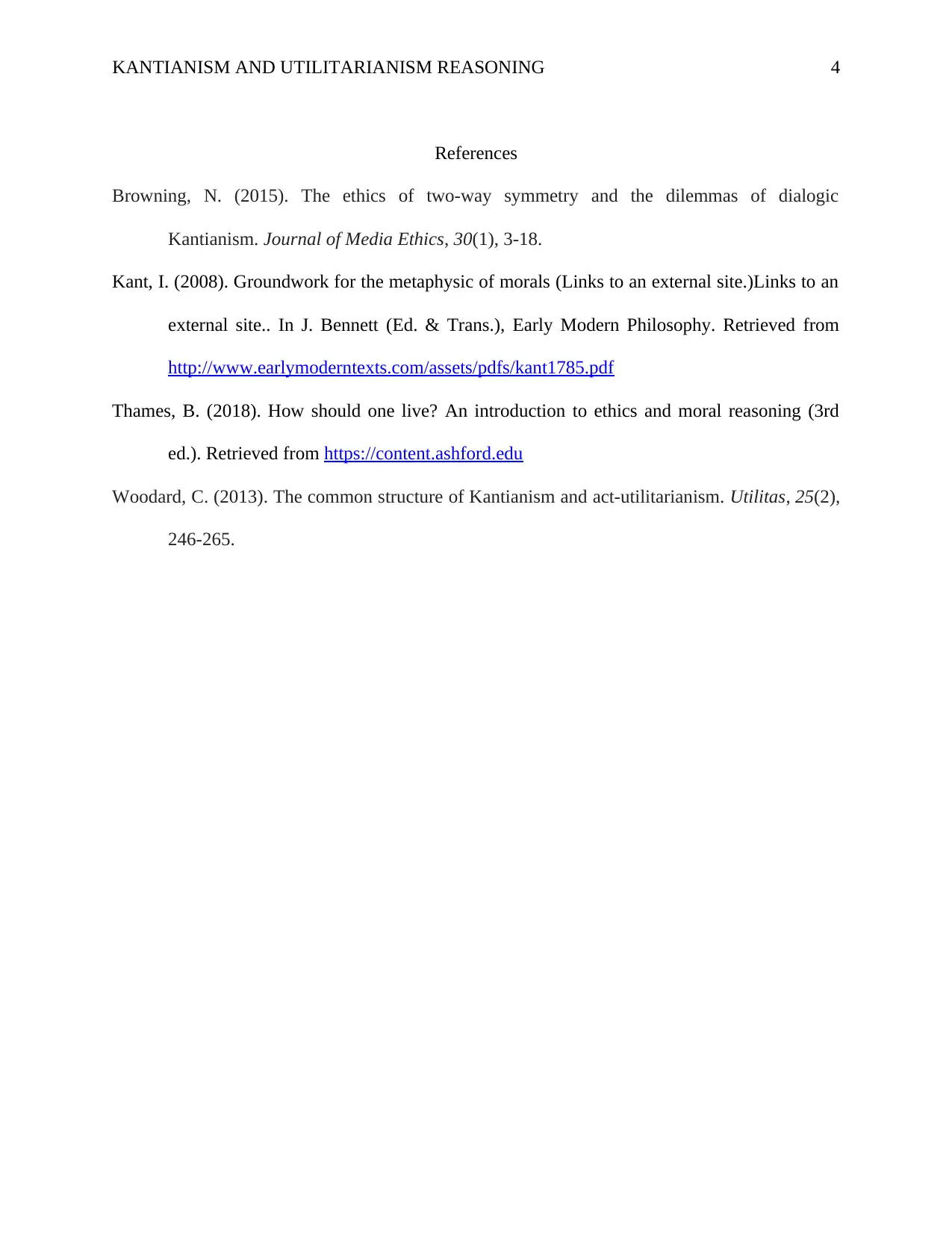Ethics and Moral Reasoning: Kantianism and Utilitarianism Debate
VerifiedAdded on 2022/12/27
|4
|859
|55
Discussion Board Post
AI Summary
The student's discussion post explores Kantianism and Utilitarianism, contrasting their approaches to moral reasoning. The student analyzes Kant's concept of the Categorical Imperative, specifically in relation to false promises, and compares it to the utilitarian focus on universal happiness. The post highlights the differences in how these two ethical frameworks arrive at their conclusions, with Kant emphasizing the importance of acting based on maxims that can be universalized, while Utilitarianism prioritizes actions that maximize overall happiness. The student expresses a preference for Kantianism, arguing for the value of rational beings and the importance of considering whether an action respects human beings as ends in themselves. The post also touches upon the potential conflicts between these two ethical frameworks, such as the debate between acting based on happiness versus acting based on moral goodness, and the implications of using others for personal gain. References are provided to support the arguments made in the post.
1 out of 4











![[object Object]](/_next/static/media/star-bottom.7253800d.svg)